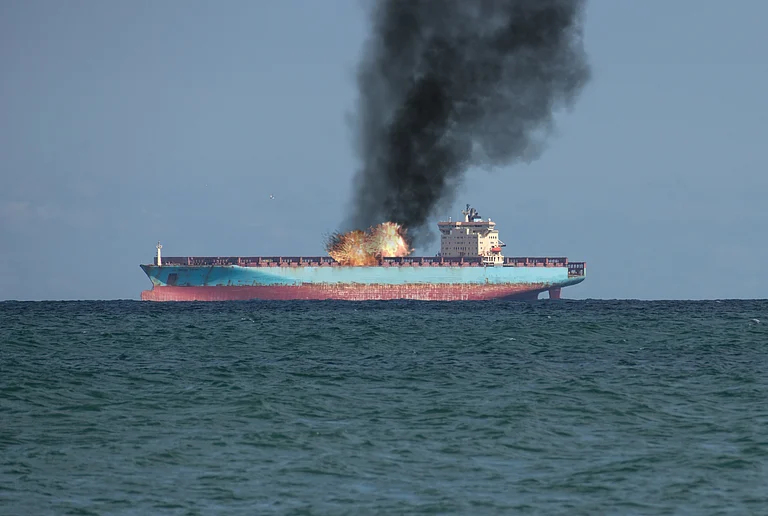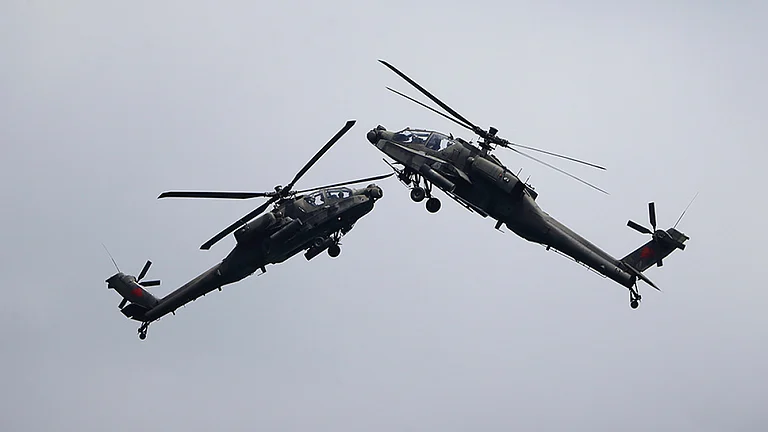Singapore Airlines put in place a new protocol after a severe turbulence hit its London to Singapore flight SQ321 on May 21, leaving one passenger dead and several others injured.
Previously, only hot drinks and soup were not allowed to be served with the seatbelt signs turned on while the service could continue at the crew's discretion. However now, meal service must be completely paused.
According to The Strait Times, the overall change in protocol over meal service where "cabin crew members must buckle up when the seat-belt sign is turned on", has had a ripple effect on passengers and crew.
Reactions poured over the notable journey that flights inbound (towards Singapore) from Europe pass over a patch of the Andaman Sea known for turbulence.
The Andaman Sea, located west of Thailand, is a part of the Indian Ocean.
One of the flight attendants noted that during her recent 3.5 hour-long flight on the Singapore-India route, there was more than an hour of turbulence and the cabin crew had to carry out meal service with little time.
“Some passengers don’t understand why the service policy change is important, and rate service as average to poor via the customer feedback channel after flights where service was affected by turbulence,” she was quoted as saying.
She further said, "We’re stressed and fatigued, but at the moment there’s nothing we can do except continue to navigate our work under the given circumstances."
Another flight steward said that they have had to make adjustments "by doing things like after-take-off drinks to manage the time we have for meal service”.
He said that reactions from passengers differ, some are understanding while others feel short-changed.
He said that since the incident, in-flight managers have been pro-actively checking upon crew members and their well-being, adding that a counselling team has also been put together to support them.
"While it might be more stressful as meal service may be affected, I think the crew will try to provide the same service standards safely," another crew member said.
An SIA crew member said, "We can't fight Mother Nature," noting that safety continues to be the crew's top priority.
A lead professional officer teaching in the air transport management degree course at the Singapore Institute of Technology, John Tan, said that police change “highlights the importance of adaptability in aviation safety”.
“Prompt responses are necessary to protect passengers and crew effectively. Enacting policy changes in response to incidents fosters a culture of continuous safety improvement," Tan was quoted as saying by the Singapore daily.
However, he pointed that the policy change might pose a challenge for Singapore Airlines in connection with maintaining a balance between safety and service quality.
“The objective is to reduce the time cabin crew have to spend on the aisles. For SIA, this could translate into retraining cabin crew to increase their efficiency or changing the way services are delivered without compromising service quality," he said adding that the cabin layout restructure remains a possibility.
Meanwhile the founder of aviation consultancy Endau Analytics, Shukor Yusof, believed that Singapore Airlines' service quality will not be affected by this newly introduced protocol.
“The decision was arrived at after careful consideration and the urgent need to, first and foremost, prevent nasty injuries for passengers and crew in the future,” he was quoted as saying.
The SQ321 flight, that took off from London's Heathrow airport, suffered a massive turbulence on May 21, leaving a 73-year-old British man dead and several others gravely wounded with brain, spinal, bone and muscular injuries.
SIA CEO Goh Choon Phong had also issued a public apology the day after, saying that they are "very sorry" for the traumatic experience endured by the passengers.
(With agency inputs)



























